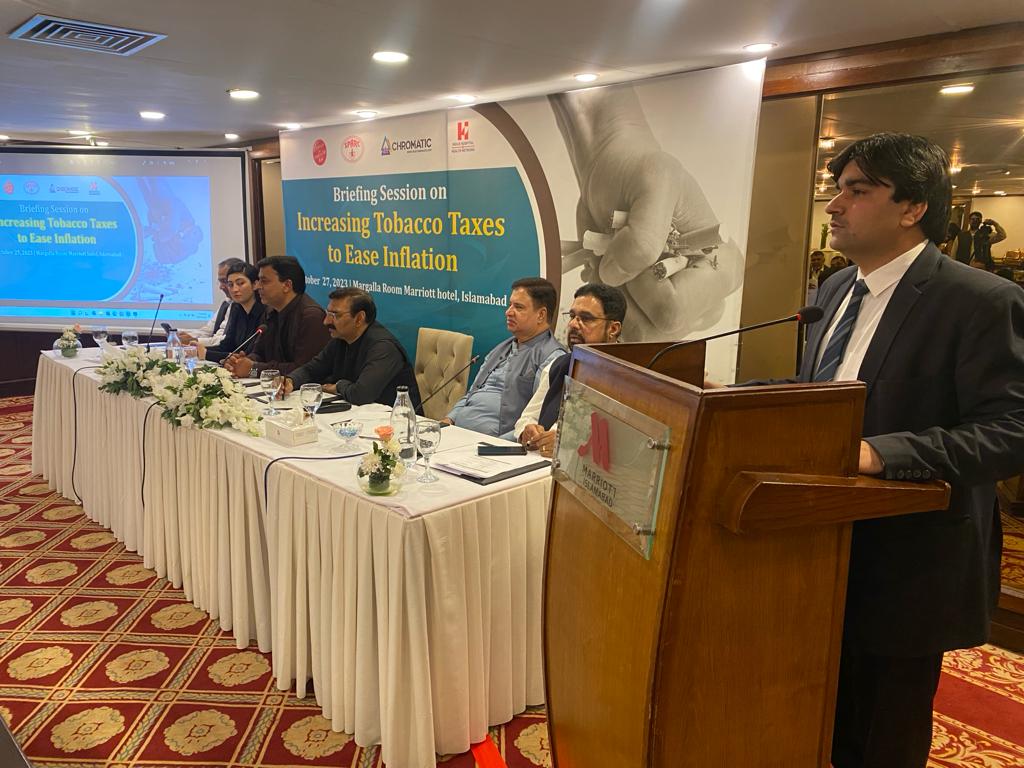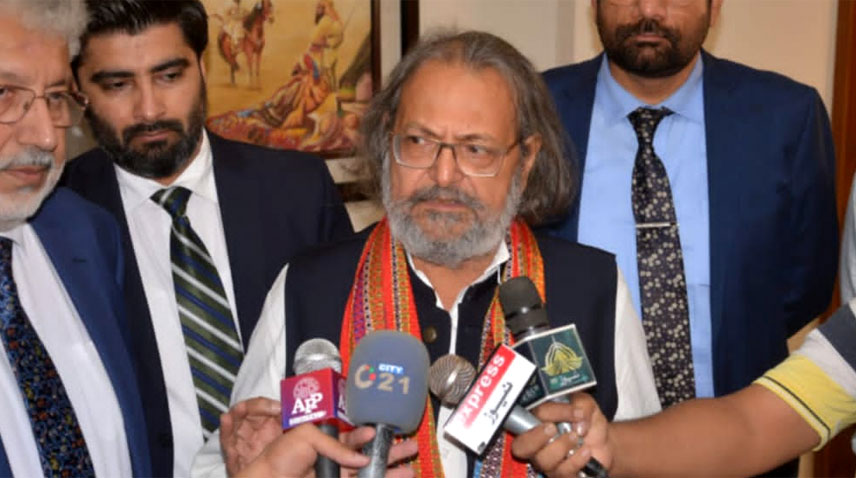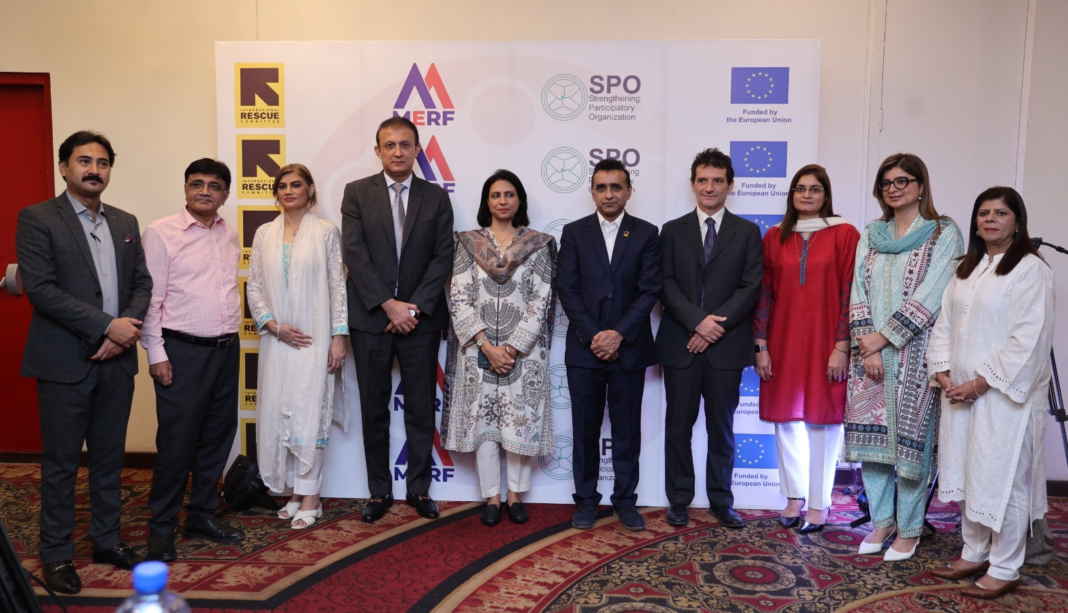By: Ahsan Yameen
ISLAMABAD: To curb inflation in Pakistan, the government can alleviate the burden on the poor by imposing taxes on the tobacco industry, which is not only reaping substantial profits but is also detrimental to public health, particularly among children and young people. Experts during a briefing held in Islamabad have shed light on the prevalence of novel tobacco products in the market that are enticing to the youth.
Zaheer Qureshi, Project Director, Track and Trace System, Federal Board of Revenue (FBR) declared the FBR’s unwavering commitment to preserving both revenue and public health. He emphasized the critical role of the tobacco track and trace system, implemented by FBR, in reducing revenue losses, combating counterfeit products, and effectively regulating the tobacco industry. This system is also instrumental in promoting public health by discouraging tobacco consumption.
Akhtar Abbas, Secretary, Sales Tax Budget, FBR shed light on pressing issues such as the prevalence of non-duty paid, counterfeit, and smuggled cigarettes. He highlighted the challenges posed by a limited workforce, logistical hurdles, and an undocumented economy, which have made tax evasion and duty avoidance alarmingly accessible. These issues have further contributed to the high incidence of tax-related problems, resulting in negative externalities that harm not only public health but also the broader socio-economic landscape.
Muhammad Sabir, Principal Economist of SPDC hinted that the government is actively exploring strategies to boost revenue, with the imminent possibility of a mini-budget in December. Increasing cigarette taxes emerges as a viable option to augment revenue and discourage smoking, thus yielding health benefits. According to SPDC estimates, a 19% tax increase could maintain affordability at levels observed in March-June 2023. This 19% increment in the Federal Excise Duty (FED) is anticipated to generate approximately PKR 16 billion in tax revenues.
Khalil Ahmed Dogar, Program Manager SPARC drew attention to the devastating effects of the tobacco pandemic, causing 465 daily deaths and ensnaring 1200 children into addiction each day.
Health advocates including Malik Imran, Country Head of Campaign for Tobacco-Free Kids; Dr. Ziauddin Islam, Former Technical Head of the Tobacco Control Cell joined the discussion and appealed to the government to adopt sustainable policies that safeguard both public health and the economy. The event witnessed participation from civil society members, journalists, and youth.
The session was organized by the Society for the Protection of the Rights of the Child (SPARC).








